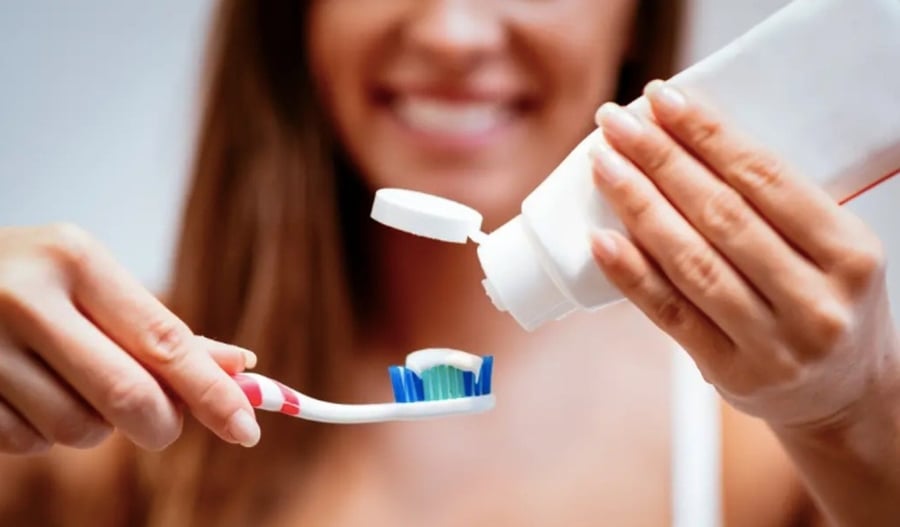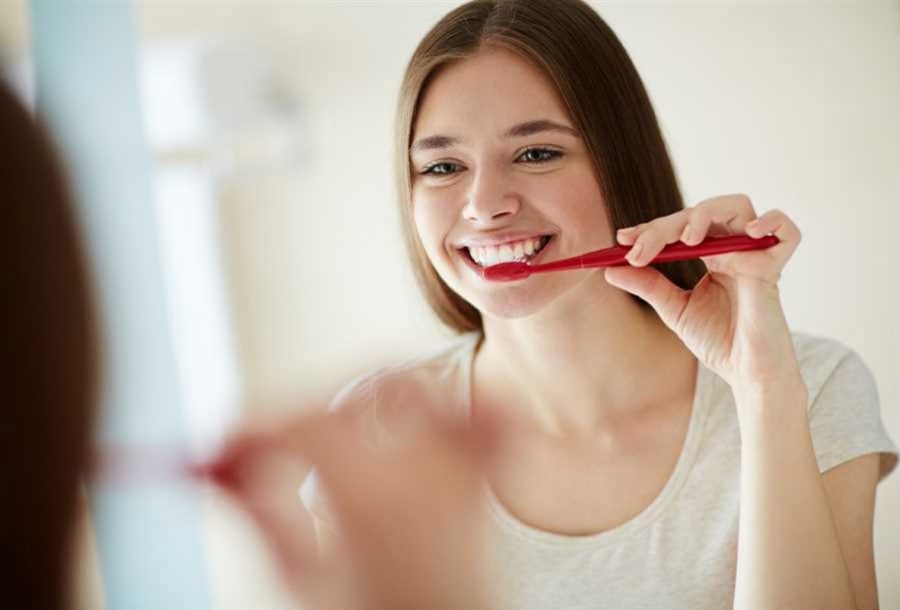Brushing Your Teeth Right After Breakfast – A Harmful Habit Disguised as a Good One
Many people have the habit of brushing their teeth immediately after breakfast to freshen their mouths. However, according to Dr. Ravanbakhsh, this can be detrimental to tooth enamel, especially if you’ve consumed acidic foods like orange juice or toast.
“Dentists recommend brushing your teeth as soon as you wake up, before breakfast. This helps remove bacteria and plaque that have built up overnight,” he shares.

Additionally, toothpaste helps protect teeth from the effects of acidic foods, while morning brushing stimulates saliva production, aiding in food breakdown. If you didn’t brush before eating, wait at least 30-60 minutes after breakfast before brushing to avoid enamel damage. In the meantime, rinsing with water or mouthwash is an effective way to remove plaque and bacteria.
Dr. Shaadi Manouchehri from the Smart Cosmetic and Dental Clinic (UK) concurs. He explains that after eating, mouth bacteria metabolize food into acids, lowering the mouth’s pH. Brushing immediately after introduces those acids to your teeth, leading to enamel erosion.
Dr. Jiang adds that this advice applies not just to breakfast but to any meal or snack. After eating, it’s best to wait at least 30 minutes before brushing. During this time, drinking water or rinsing your mouth can help dislodge food particles and residue from your teeth and gums.
Rinsing Your Mouth Right After Brushing – A Common Misstep
Some people have the habit of rinsing their mouth with water immediately after brushing to get rid of any remaining toothpaste. However, according to The New York Post, this can reduce the protective benefits of brushing.
“After brushing, you should only spit out the excess toothpaste without rinsing your mouth right away. If you rinse with water immediately, you wash away fluoride – an essential component in preventing tooth decay and protecting enamel,” warns Dr. Ravanbakhsh.

Instead, wait for at least 10-15 minutes before drinking water or consuming any liquids to ensure that fluoride has time to adhere to your teeth and provide maximum protection.
Brushing Too Hard – A Common Misconception About Better Oral Hygiene
“Brushing harder does not mean cleaner teeth; on the contrary, it can damage enamel and harm your gums,” shares Dr. Ravanbakhsh. For effective yet gentle cleaning, he recommends using a soft-bristled toothbrush or an electric toothbrush. If your brush’s bristles wear down quickly, it’s a sign you’re applying too much force.
“A simple tip to control the force of your brushing is to hold your toothbrush with just three fingers instead of a tight grip. This reduces pressure on your teeth and gums,” he adds.
Forgetting Dental Floss – An Overlooked Yet Essential Step
Dentists emphasize the importance of flossing for good reason. “You should floss at least once daily. Research shows that flossing before brushing can be more effective at removing plaque,” explains Dr. Ravanbakhsh. Not only does it freshen your breath and dislodge food particles, but it also plays a crucial role in cavity prevention.
Rinsing your mouth after meals is another good habit, but remember to wait at least 10-15 minutes before doing so.
Improper Brushing Technique – Doing More Harm Than Good
You may think you’re brushing your teeth correctly, but you could be missing some important aspects. According to experts, brushing side to side is not recommended. Instead, focus on cleaning each tooth individually by gently brushing in a circular motion or back and forth. Holding the brush at a 45-degree angle also helps reach tight spaces and hard-to-clean areas.
And don’t forget your tongue! Cleaning your tongue not only removes bacteria but also improves your breath, keeping your mouth fresh and healthy.

































